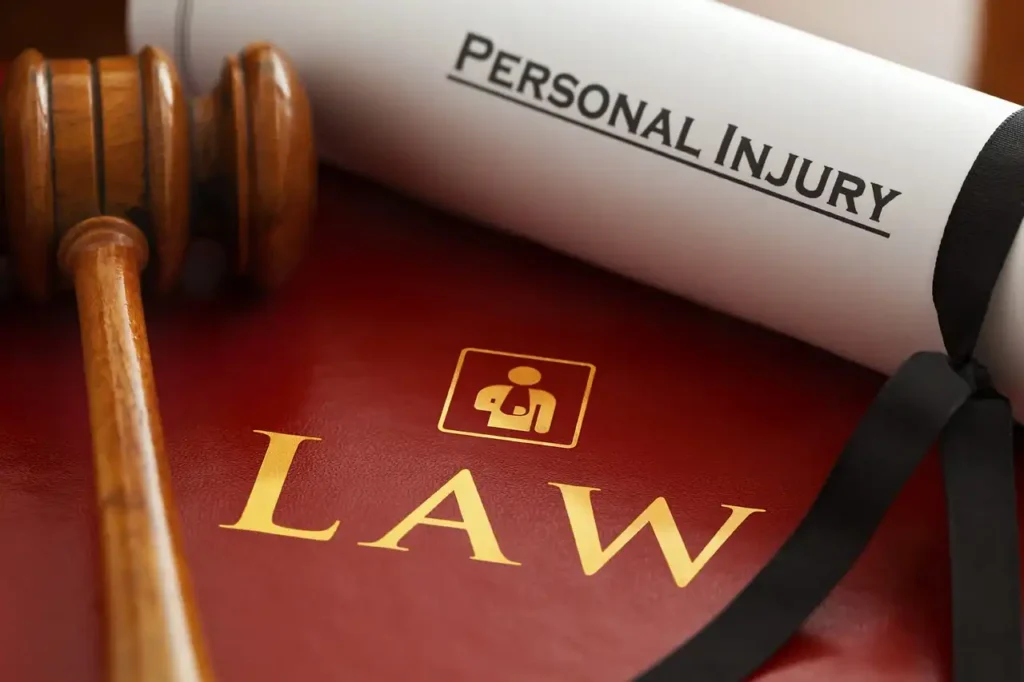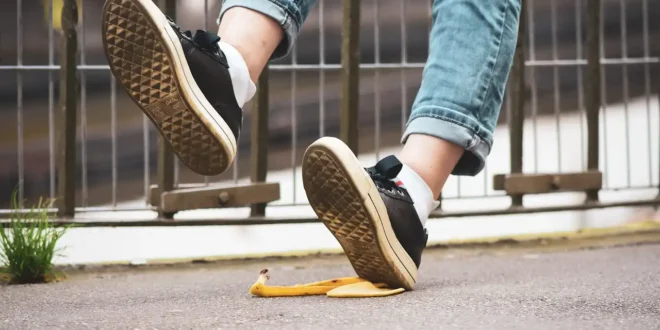Ignoring a seemingly minor slip and fall can have enduring repercussions on your health and daily life. Often, what starts as a simple bruise might signal deeper injuries, leading to chronic pain or mobility issues. Don’t sideline your well-being – understand the risks of underestimating these accidents and how immediate attention can save you from long-term harm.
Financial Consequences
Ignoring a slip and fall injury doesn’t just impact your physical health — it can also lead to significant financial strain. Without proper medical evaluation, injuries might worsen over time, necessitating expensive treatments, rehabilitation, or even surgery that could have been avoided with immediate care. Lost wages from an inability to work compound the financial burden, particularly if the injury results in long-term disability.

Additionally, if the fall is work-related, delaying a claim could jeopardize compensation benefits. People living or visiting Sin City who consulted Las Vegas Slip and Fall Injury Lawyers are told how vital swift legal action can be to securing settlements and damages. The costs extend beyond immediate medical bills; they can affect insurance premiums and lead to out-of-pocket expenses for ongoing pain management and mobility aids. This underscores the importance of promptly addressing slip and fall injuries to avoid such unnecessary financial impacts.
Chronic Pain
Chronic pain from untreated slip and fall injuries is a common and serious consequence. When an injury isn’t promptly tended to, the body may heal improperly, leading to misalignments that cause persistent discomfort. Soft tissue damage, like sprains or tears, may not heal correctly without medical intervention, causing long-lasting pain and increased vulnerability to future injuries. In some cases, there can be nerve damage that goes undiagnosed, which can evolve into complex regional pain syndrome, a chronic pain condition that is challenging to treat.
Moreover, as the body compensates for the injury, it can create an imbalance, placing undue stress on other areas, leading to a cycle of pain and dysfunction that can persist for years. Without early treatment, individuals increase their risk of developing conditions like arthritis or degenerative disc disease in affected areas. Individuals need to acknowledge the severity of their injuries, no matter how minor they may seem, to prevent chronic conditions that could dramatically affect their quality of life.
Secondary Injuries
Failing to address your initial injury can lead to an onslaught of new issues regarding your well-being. Here are some injuries that can come out of you not responding swiftly:
- Strains and sprains
- Fractures
- Tendonitis
- Nerve compression
- Muscle imbalance
- Cartilage damage
- Instability
- Postural issues
- Soft tissue injuries
This compensation might cause you to overuse other parts of the body, leading to strain and stress on muscles, tendons, and joints not initially impacted by the fall. This overcompensation can result in a range of subsequent injuries like tendonitis, muscle imbalances, and even nerve compression. This cascading effect can exacerbate the original injury and over time, potentially create chronic issues that can severely impair your physical capabilities and overall well-being.
Loss of Functionality
Ignoring the injury can lead to an impaired ability to perform everyday tasks, drastically diminishing one’s quality of life. Unaddressed, the initial harm might result in joint stiffness and decreased range of motion. As a person involuntarily modifies their movements to avoid pain, they may develop poor biomechanics, leading to decreased strength and coordination in affected areas.
This adaption can shift the workload to unaffected muscles and joints, overburdening them, and causing further dysfunction. Activities once taken for granted, like walking, climbing stairs, or even standing for prolonged durations, may become challenging or unbearable. This cascade of complications often leads to a reduced level of independence, with the potential for dependence on mobility aids or assistance from others for basic needs.
Joint Damage
Joint damage is a severe consequence of neglecting a slip and fall injury. Ignored or improperly treated injuries can lead to subtle, yet progressive deterioration of joint integrity. As the body tries to heal, but without correct alignment or activity modification, joints are subjected to uneven pressure. This abnormal stress can accelerate the wear and tear of joint cartilage, which is vital for smooth joint movement.
Once this cartilage degrades, conditions like osteoarthritis can develop, leading to joint pain, inflammation, and loss of function. Further, ligaments and tendons that stabilize the joint might become overstretched or weakened, increasing the likelihood of dislocations and instability. Persistent inflammation from untreated injuries also contributes to joint degradation, further impairing mobility and exacerbating pain over time.
Reduced Mobility
Even a minor injury can lead to inflammation and swelling, which restrict movement and can cause muscle stiffness. Without intervention, this can become a chronic issue, affecting the body’s mechanics. The injured person may subconsciously alter their gait or range of motion to reduce pain, which can lead to muscle atrophy and weakness due to disuse.
Additionally, as the body compensates, it places extra strain on other muscles and joints, potentially leading to additional injuries and further limiting mobility. This domino effect severely impacts a person’s ability to move freely and can result in long-term dependence on others or mobility aids for simple daily activities. Addressing injuries immediately is crucial to preserving mobility and maintaining an active, independent lifestyle.
Psychological Impact
Slip and fall injury victims may experience a range of emotional responses, including stress and anxiety over the injury itself and its implications for daily life. Feelings of helplessness might arise when mobility is compromised, leading to dependence on others for tasks previously managed independently. Constant pain can lead to mood swings, irritability, and depression, especially if it becomes chronic and interferes with sleep and other life quality aspects. All this often leads to abusing pain medications or turning to other substances that further harm your body and mind.
Furthermore, the financial pressure from medical bills and potential job loss can further exacerbate mental distress. Out of fear of re-injury, some individuals develop a phobia of the circumstances that led to their fall, which can limit their willingness to engage in activities, fostering social isolation and contributing to a downward emotional spiral. Prompt attention to injuries can mitigate these psychological effects by preserving normalcy and autonomy in one’s life.
Conclusion
Don’t let a slip and fall dictate your future. Address your injuries immediately to preserve your health, mobility, and peace of mind. Remember, early intervention can save you from chronic pain, financial strain, and emotional distress. Take control and seek prompt medical and legal advice to ensure a full recovery and safeguard your well-being. Your health and independence are worth it — you deserve to live without the shadow of an accident looming over you.
Did you find this article helpful? If so, check out the rest of our site for more informative content.
 SlushWeb Live the Way You Love
SlushWeb Live the Way You Love



